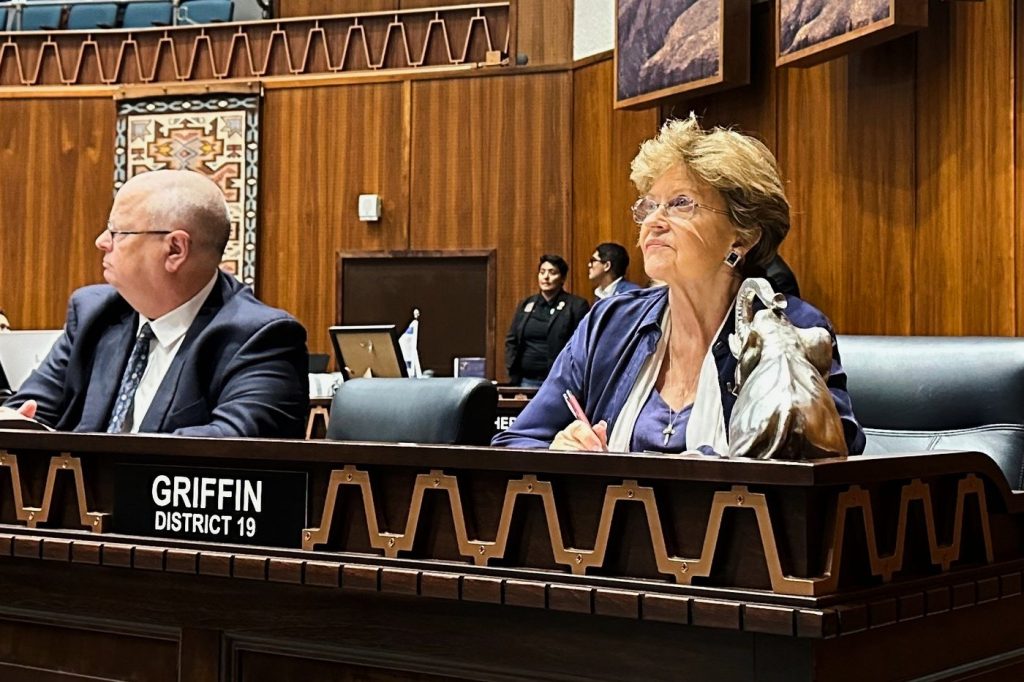PHOENIX (AP) - Over the past two decades, Arizona has grappled with an urgent issue regarding the management of its dwindling water supplies in the face of drought, climate change, and increasing demand. At the forefront of this contentious debate is Rep. Gail Griffin, a prominent Republican lawmaker who has influenced water and land use policy from her position as the chair of critical legislative committees.
Griffin's leadership style has drawn criticism from residents and fellow lawmakers alike, particularly over concerns related to unregulated groundwater pumping, which is believed to be depleting wells across rural areas. Democratic Governor Katie Hobbs has expressed frustration with Griffin's resistance to legislative measures aimed at addressing these issues, which ultimately contributed to the stagnation of water legislation this year.
In light of legislative gridlock, Governor Hobbs is considering using her executive authority to introduce regulatory reforms in specific regions, similar to her recent actions in the Willcox Basin. At the outset of the current legislative session, Hobbs proposed a bipartisan plan to regulate groundwater pumping in rural areas, but it failed to garner Griffin's support. Instead, Griffin backed a contentious measure allowing farmers to transfer their pumping rights to developers, promoting the construction of housing with adequate water supply credits.
Despite this legislative approval, residents like Karen Weilacher remain dissatisfied, emphasizing the need for expanded governance of Arizona's groundwater code, which was originally established in 1980. The ongoing disputes highlight significant differences over regulatory frameworks in rural versus urban settings, as well as the determination of governing bodies for water use.
Weilacher, in a dramatic appeal to Griffin's committee, turned her back as a symbolic gesture, advocating for the urgency of improving water management in Arizona. Although Griffin refrained from discussing her specific role in shaping water policy, she remains steadfast in her belief that Hobbs' proposals could adversely affect agriculture and rural economies. "As we work with stakeholders, we will continue to support private property rights and individual liberty," Griffin stated, emphasizing the need for a solution that protects local communities.
Having served since 1997, Griffin is seen as a staunch advocate for rural lifestyles, a stance supported by her friend and former House Speaker Rusty Bowers. Her constituents often admire her dedication to their principles, which she claims drove her to enter public service. This appeal resonates with voters who consistently elect her to the statehouse.
Cochise County farmer Ed Curry recently noted the disconnect between constituents' pleas for change and Griffin's responsiveness, criticizing her approach to governance. He highlighted the significant costs associated with deepening wells and emphasized the necessity for new regulations to secure Arizona's water future. "Something has to be done," he asserted, reflecting a growing sense of urgency among residents facing declining water resources.
With the complexities surrounding water management in an arid state, Arizona's leaders are at a crucial juncture. The ongoing debates illustrate the challenges of balancing individual property rights with the necessary regulation of water resources to ensure sustainable access for all residents.










